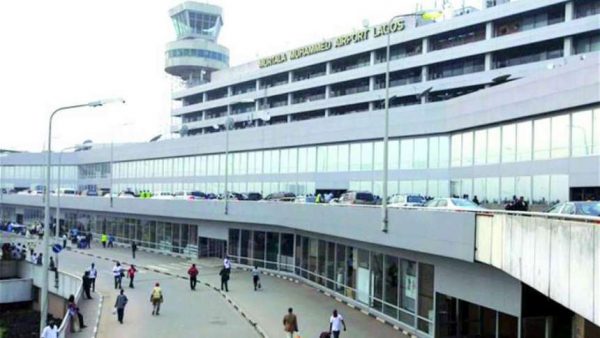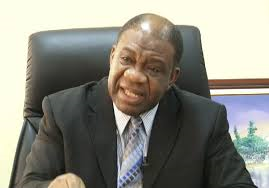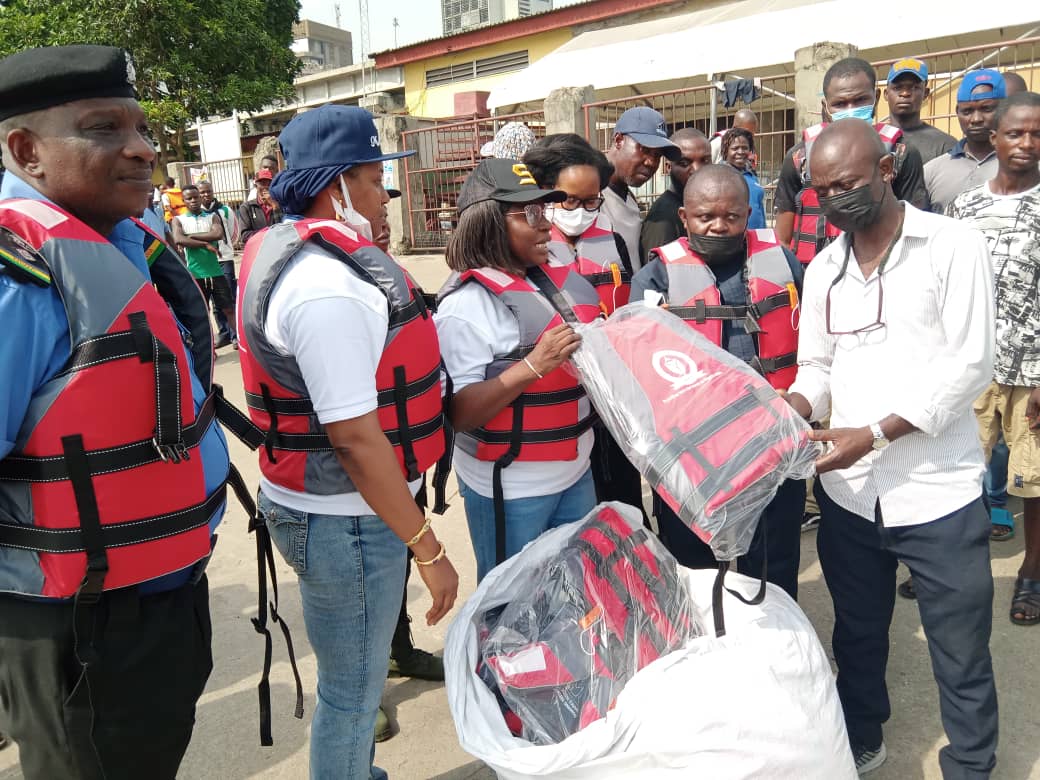Customs Target Maximum Revenue from Lagos Free Trade Zone

As efforts at automation of operational process gain momentum in Nigeria’s maritime industry, the Nigeria Customs Service (NCS) has taken a proactive futuristic approach towards intensifying efforts at ensuring seamless, compact operations that will translate into maximum revenue for the federal government.
The Customs Comptroller General, CGC, Col. Hameed Ali (Rtd), represented by the Zonal Coordinator Zone “A” of the NCS, Assistant Comptroller General of Customs, ACG, Eporwei Charles Edike, in continuation of efforts at blocking revenue leakages and ensuring that not a kobo accruing to government as revenue is lost under any guise, visited the Lekki Free trade Zone, LFTZ, Lagos, to find out what needs to be done to ensure that Customs is able to generate optimum revenue from within the LFTZ and the deep sea port at Lekki when it becomes fully operational.
“This visit is in continuation of our efforts towards ensuring that everything necessary is in place so that no revenue is lost from within this free trade zone. We also want to block all loopholes that could cause loss of revenue. This is a big and different sea port from what we have at Apapa/Tin can. Customs must be fully integrated in its entire operations as far as imports and Exports are concerned so as to ensure that all revenue is collected”, Edike said.
Addressing newsmen, management and staff of Tolaram Group, a private investor/developer of the Port at Lekki, the ACG stated, “We are here to find out from you what challenges you have, how Customs could assist in resolving them, identify gaps and operational leakages through which government revenue could be lost and we also want to ensure that when you take off fully, your operations/services will be smooth and hitch free. This will translate into more trade, more revenue and a bigger, stronger economic base for the national economy.”
Mr, Kundan Sainawi, Managing Director of Tolaram Group received the CGC team led by the ACG. The CGC team had the Customs Area Controller, Tin Can II, CAC, Dalhatu M.A (formerly Lilipond) and other top officers of Zone A, assured the ACG that the investment by Tolaram Group alone of over $1.6b is not something they want to take chances with. He explained that their international financiers/partners and regulatory agencies of the federal government such as the Nigerian Export Processing Zone Authority, NEPZA, Nigerian Ports Authority, Immigration and others are on ground at the LFTZ to make sure that the rules/regulations are strictly adhered to.
According to Mr. Sainawi “We are very committed to this project. We have invested so much and we intend to invest more. Everything we do here is in line with international standards/best practices. We are bench marking our operations/services with what obtains in other ports of the world like Singapore, Denmark and other countries where cargoes are cleared at minimum time without delays”
After watching a video presenting of the layout, planned structures and facilities-ongoing and others on which construction work is yet to start, Edike observed that that considering the magnitude of the project, there would be no room for delays.
In his words “what I see here requires that everything needs to be done to ensure fast operations. We must be prepared and ready. Time is money. We cannot afford to waste time here. The kind of operations/services that will be offered here will be different from what obtains at Apapa or Tin Can Ports. Customs must be fully integrated into your operations so that the maximum revenue from Imports, Exports of finished products/raw materials that will be exported from this port is realized”.
Asked to explain what he meant by maximum revenue, the ACG said “This is a deep sea port in a Free Trade Zone with lots of incentives for investors who will establish their factories or industries within the Free Trade Zone. We as Customs must establish our presence from this stage of development and let everyone operating from here know what Custom stands for. Revenue to government on imported items and exports must be paid in full. Ignorance is not an excuse but we also believe in sensitizing stakeholders”
The LFTZ is believed to be strategically located to favour the establishment of small and medium scale industries. The construction of a Deep Sea Port is seen as an added advantage as Exports and Imports will be easily moved in or out of the port.
The location of the Dangote refinery, described as one of the biggest in the world, in the LFTZ is seen as a major attraction as several ancillary industries are expected to spring up within the LFTZ as the area covering over two thousand hectares of land, is open for prospective investors.
Some critical needs which were identified on the visit include the need to have a Customs Processing Centre, CPC, Import/ Exports sheds and Customs Examination bay established at site of the Port at Lekki. This was discussed and agreed on by Customs and investors at the LFTZ.
The ACG also visited the Dangote Refinery site and other factories within the LTFZ to find out how well the owners have complied with payment of their Excise Duties. Fortunately for them and to the delight of the ACG and his team, the compliance level was very high.
By Ephraim, Joseph Haruna
Public Relations Unit, Zone ‘A’ HQTERS






